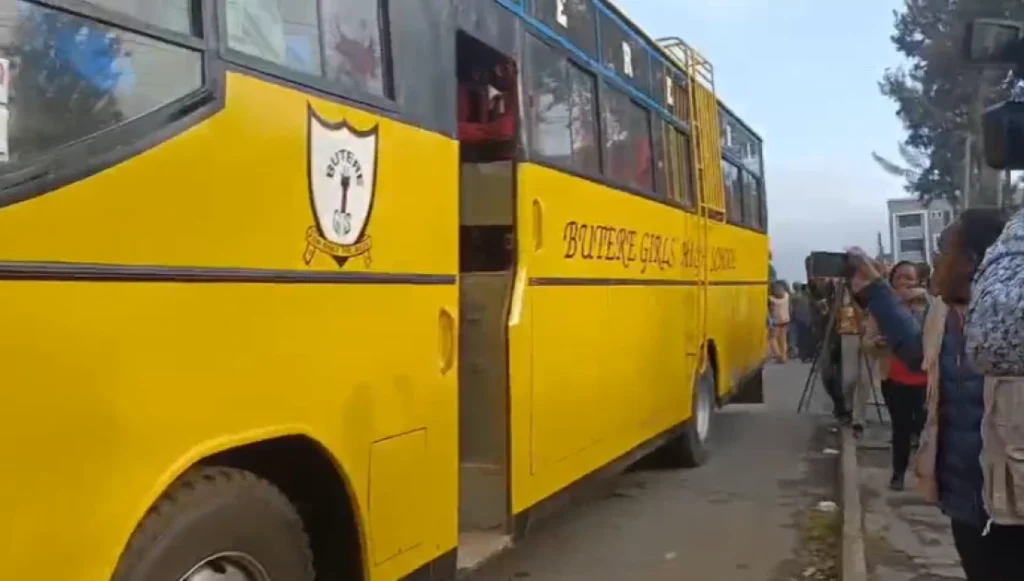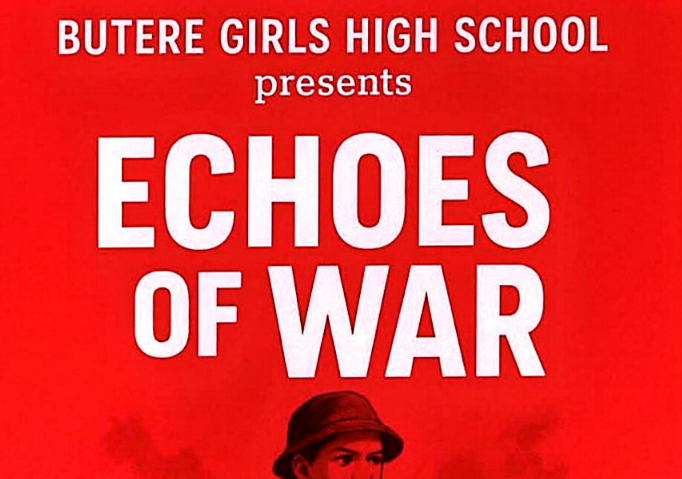Butere Girls High School in Kakamega County has become the talk of the country after their play, “Echoes of War,” gained public interest.
The now controversial play was set to be performed at the ongoing Kenya Schools and Colleges National Drama and Film Festival in Nakuru County.
However, the arrest of former Kakamega County Senator and the author of the play, Cleophas Malala, and his detention at Eldama Ravine Police Station on Wednesday evening, put a halt to the performance.

Prior to his arrest, Malala had gone to visit the students at Kiboron Girls Secondary School, where they were staying during the drama festivals.
The evening incident drew public criticism, with many describing the chaotic scenes involving the tear-gassing of journalists present as an interference with freedom of speech and expression guaranteed in the Constitution.
Joining the public in faulting the security system was former Deputy President Rigathi Gachagua. He claimed that the government was wrongfully using security personnel to suppress creativity.
“The use of the criminal justice system to suppress creativity and social audit has reached alarming proportions,” Gachagua said. “It’s shameful that dozens of DCI detectives in five vehicles were dispatched to arrest Malala for writing a script,” he added.
More drama unfolded on Thursday morning after Butere Girls students staged a walkout and demanded the release of their director, Cleophas Malala. In solidarity with their colleagues, the remaining students also boycotted the performances and hit the streets chanting anti-government slogans like “Ruto Must Go,” and “No Butere, No Drama.”
The students lamented that they were treated to utter shock when the organizers of the festival laid down new rules barring any media coverage.
“They took us to the stage with no audience and no sound. We just sang the National Anthem and decided not to perform until we see our director,” a section of the students said.
Hours later, after his release, Malala recounted his ordeal at the hands of DCI officers. He, however, maintained that “Echoes of War” would still be performed regardless of the State intimidations.
“I was arrested and put in the boot of a Subaru, then taken to the bush by DCI officers. They later brought me to Nakuru Police Station, then took me to Eldama Ravine, where they locked me up without even giving me water, food, or allowing me to see my lawyers. It was only a few hours ago that they released me without charging me with any crime.”
Taking to social media, a majority of Kenyan leaders opposed to the government denounced the act of using the police to teargas school children.
Wiper Party leader Kalonzo Musyoka lauded the students for boycotting the drama festival, which he alleged had been infiltrated by the government.
“I stand with Butere Girls and all students who joined the walkout in solidarity. Kenya must remain a country where even the echoes of war are heard — and heeded. The silence from State House, the Ministry of Education, and the Ministry of Interior is absolutely telling,” Kalonzo wrote on X.
Former Public Service CS Justin Muturi slammed the government for tear-gassing school children instead of nurturing their talents. He warned against taking the country back to the dark days where the government would dictate to its citizens the kind of information to consume.
“When a government starts trembling at the sight of schoolgirls performing a play, then we must all pause and ask: what exactly is it running from? The events that unfolded in Nakuru, where Butere Girls High School students were tear-gassed for showcasing a piece of theatre, mark a dark and shameful chapter in our national story,” Muturi stated.
While offering retaliatory statements, leaders allied to President William Ruto, led by the Cabinet Secretary for Education, Migos Ogamba, denied claims that the government blocked Butere Girls students from performing “Echoes of War.” He asserted that the students refused to perform, demanding the release of their director.
On his part, the Interior CS Kipchumba Murkomen affirmed the Ministry’s commitment to providing security to every Kenyan. He also apologized for instances where police officers resorted to lobbying teargas at students and journalists.

However, CS Murkomen advised against bringing politics into schools and using school children to further political agendas.
“We are duty-bound to protect the rights of everyone and the freedom of expression. Matters of education should not be dragged into politics. Our parents and the government have a duty to teach our children in the right way and delink politics from education,” Murkomen said, adding that leaders should respect learning spaces.


